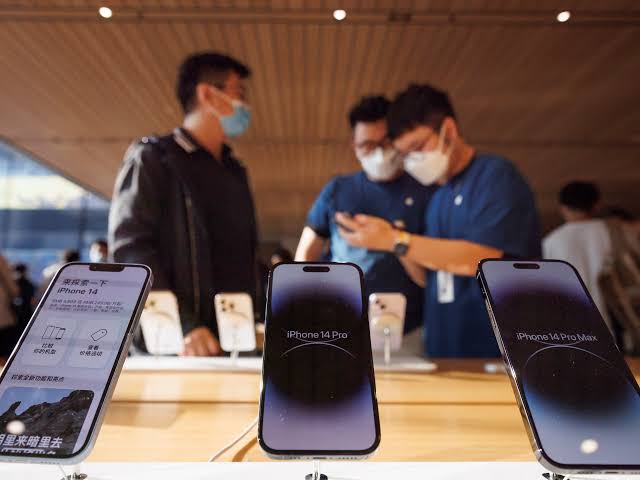Apple faces growing problems in its largest foreign market and worldwide production base as China expands the iPhone ban in critical government departments to government-backed agencies and state firms.
Apple’s position in China is threatened by Beijing’s efforts to lessen reliance on foreign technology and American software and circuits. Several organizations, including central government regulators, have directed employees not to bring iPhones to work, confirming a Wall Street Journal article.
Beijing plans to apply this limitation to many state-owned firms and government-controlled organizations. Although no legal injunction exists, state enterprises and organizations are expected to enforce the personal device ban differently.
Read also: Somalia bans TikTok, Telegram, and 1XBet to maintain morality
This prospective ban is necessary because China wants to reduce foreign technology use in sensitive environments. China is a crucial market for Apple, contributing 20% of its revenue and manufacturing iPhones in enormous plants with millions of people. If the prohibition is enforced, Apple’s market position and supply chain could suffer.
According to the narrative, investors didn’t like the idea of China turning against Apple. As a result, the company’s shares dropped 3.6%, the most significant drop in a single day since August 4.
Even though competition between the US and China in the tech industry is getting worse, Apple has kept its fame in China. Both the government and the private sector are buying a lot of iPhones.
iPhone ban strains US-China tech ties
The ban on iPhones comes simultaneously with China’s efforts to make its technology as good as or better than American innovation. The previous week, the country released a Huawei smartphone with a powerful processor made in the country. This phone got a lot of attention on both sides of the Pacific.
Beijing told central government offices and state-backed companies in May 2022 that they had to replace foreign-brand personal computers with Chinese ones within two years. This signified that Beijing was working hard to get foreign technology out of sensitive areas.
At the same time, the Biden government has tried to stop the United States from sending cutting-edge semiconductor equipment to China. China’s top chipmaker, Semiconductor Manufacturing International Corp., has come under review because it sells parts to Huawei, a company that the US has put on a denylist.
Even though relations between the US and China are tense, Apple still relies on China a lot, both as a place to make its goods and as a place to sell them. CEO Tim Cook has emphasised how good this relationship is for both sides.
Senegal arrests Starlink marketers, suspends internet connectivity
China was a big part of Apple’s last quarter’s results, which helped make up for a slow time overall. A report says that Apple’s sales for its fiscal third quarter, which finished on July 1, went down by 1.4% to $81.8 billion, while its earnings per share went up by 5% to $1.26.
Analysts had expected $81.69 billion and $1.19 per share, more than what they got. Even though iPhone sales were down, they were made up for by solid sales in the services section, which includes Apple TV, and by sales in China, which went up 8% from the year before.
The company will show off its newest iPhones the following week, preparing for the holiday quarter, usually when it makes the most money.




